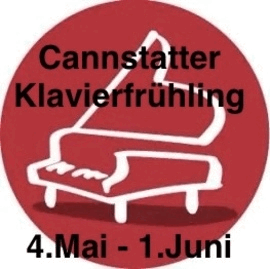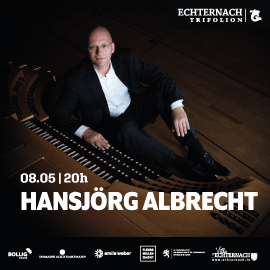Herr Nisini, in Zusammenhang mit Ihrem Album habe ich zum ersten Mal den Begriff Renaissance-Posaune gehört – was unterscheidet eine Posaune aus der Renaissance von einer modernen Posaune – baulich und auch klanglich?
Grundsätzlich ist das Prinzip der Posaune, also wie das Instrument funktioniert und seine bauliche Form seit mindestens 550 Jahren dieselbe. Die Posaunen der Renaissance, Barock und auch klassischer Zeit sind ziemlich ähnlich, sie wurden mit sehr dünn gehämmertem Blech gebaut, der Schallstück-Becher hatte einen sehr kleinen Diameter und die Resonanz des Instruments war ziemlich gering. Read More →
What does this award mean to you?
Faced with an award of this caliber, and at 48 years of age, I find it a little difficult to look back. I suppose it’s normal because I’m in the middle of doing, building, creating. At first it was a very, very big surprise, but then I began to look around me and feel very grateful for everything I have received from so many people throughout my career. Read More →
Frau Abel, Frau Klein, Sie verfolgen beide auch Solokarrieren – wann und wie haben Sie sich aber als Lied-Duo gefunden?
Wir haben uns ganz am Anfang unseres Studiums 2011 in Freiburg kennengelernt. Ein Semester hatten wir dort Lied-Unterricht, dann verschlug es uns beide an andere Studienorte. Schließlich sind wir beide in München gelandet und Monika hat während der Corona-Pandemie 2020 wieder bei Kathrin angeklopft. Seitdem arbeiten wir recht intensiv zusammen. Read More →
You were awarded the Solo Instrument Award for 2025 by ICMA, the International Classical Music Awards. Could you tell us what this award means to you?
ICMA is one of the leading organizations in the musical world. For all the winners, labels, producers and artists, it is a stamp of quality. While producing, we work constantly under feelings of uncertainty. There is no real formula to make a good, convincing recording. Read More →
How did you and your colleagues from the Danel Quartet react when you found out that you had won the International Classical Music Awards for the Chamber Music category with your album of Shostakovich’s String Quartets?
I was so happy that our work is being recognized by professionals. It means a great deal to us, especially after all the studying, rehearsing and performing. We try to create something we believe in and enjoy. If both the audience and professionals like our music, then we see it as a success. Read More →
Bolognese mother, Neapolitan father, Ettore Pagano grew up in the Sabina countryside, in Poggio Mirteto, in a family of six children. He approached the cello at the age of nine, self-taught, picking up an instrument found at home and “given up” by one of his brothers. His was a gradual, spontaneous approach, which had no (at least in the initial phase) academic projects. And yet, from that moment on, Ettore Pagano turned everything he touched into gold. Read More →
Haben Sie sich über die ICMA-Auszeichnung gefreut?
Es hat mich schon sehr erstaunt, weil es gab ja nicht nur positive Kritiken für diese Produktion. Es gab auch Schelte, auch in Richtung Musik. Gerade die Münchner Kritiker schienen sich überhaupt nicht an der Art und Weise zu begeistern, wie ich Johann Strauss Musik versucht habe zu deuten. Ich habe manchmal das Gefühl, sie schweben in Erinnerungen an die längst vergangenen Zeiten, ohne tatsächlich noch zu wissen, wie das nun wirklich war. Read More →
Viktoria Elisabeth Kaunzner, mit Ihrem neuen Album sprengen Sie musikalische Grenzen. Es ist ein Album, das östliche und westliche Traditionen verschmilzt und klassische Konzertrituale hinterfragt. Ihr 30-köpfiges multinationales Ensemble UKOREVV wird dabei zum Labor für eine neue, grenzüberschreitende Musiksprache. Sie suchen offenbar auch jenseits der Musik nach Inspiration. Gerade waren Sie intensiv auf der Berlinale unterwegs?
Ja, ich habe die Gunst der Stunde beim Schopf gepackt und war in sieben Filmen in vier Tagen. Das Niveau hat mich überrascht – Filme aus Korea, Taiwan, Kanada und eine deutsch-französische Produktion. Read More →
Bruckner’s 9th under Païta is one of the fastest, most dramatic and eccentric on the market. What led the conductor to immerse himself in this music?
AH: It’s true. I was able to see this by consulting my rather extensive collection of interpretations of this work, and I realized the obvious. This rapidity – but I don’t like this word, which means nothing other than what the score in principle demands and which remains formal – deserves rather the qualifier of urgency. On the one hand, there is something hasty, even a decision, that of a confrontation with death, for example, which haunts this work far more than joy. In fact, there is no joy here, which is strange for a confession of faith, since the work is dedicated to « To the good God »)… Read More →
You became the winner of the ICMA Discovery Award for the year 2025, one of the most prestigious awards in the classical music world. How did this award make you feel?
First of all, I felt incredibly happy and privileged to be chosen among many talented young artists by so many esteemed professionals in the classical music world. I am very proud to be a part of the ICMA family whose members include the best classical musicians. It is also a great responsibility but I believe this exciting responsibility will be a driving force for future achievements. Read More →



























